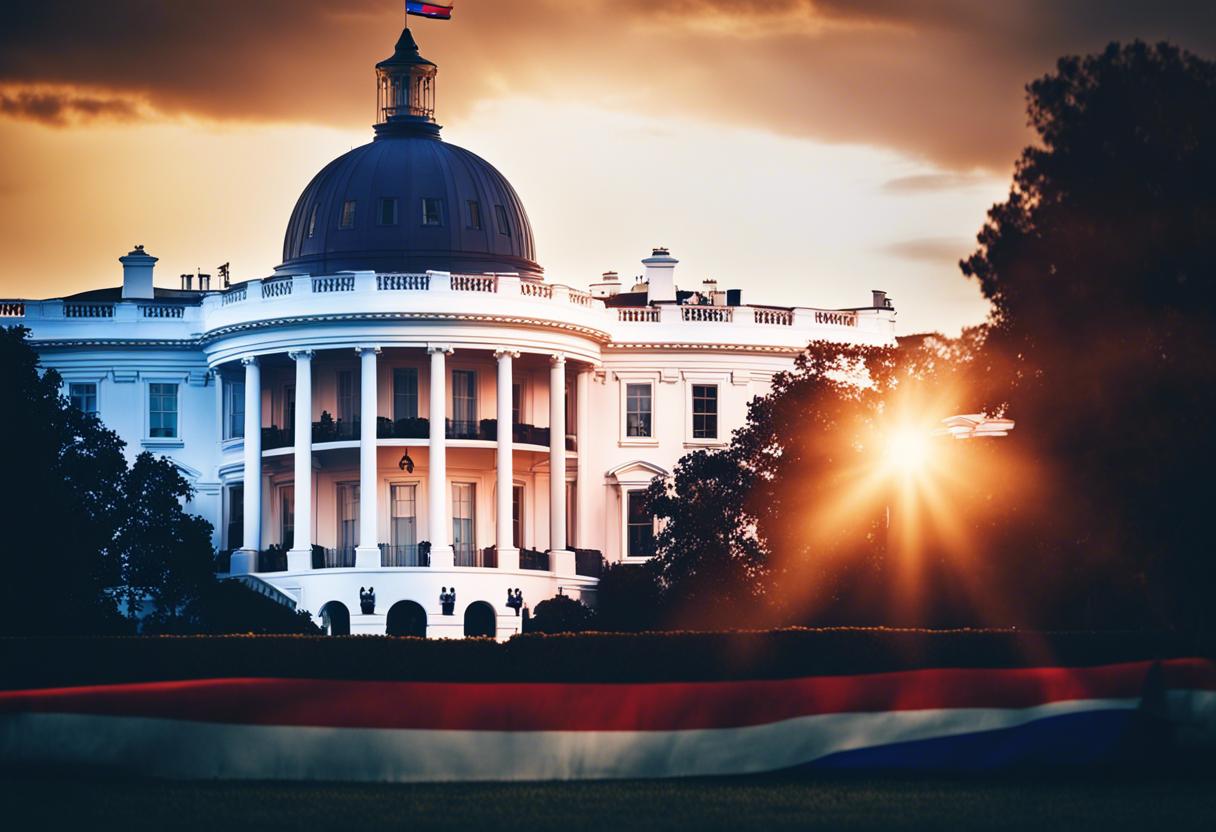The skilful orchestration observed in Thursday’s exchange of prisoners was striking. However, the circumstances that led to the initial 26 incarcerations tell a compelling story.
Whilst Russia consented to liberate detained journalists, creatives, human rights advocates, and even a high school pupil, the individuals they received in exchange included a convicted murderer and a cybercrime hacker.
What was also extraordinary was the maintained secrecy leading up to Thursday, as the complex exchange of all prisoners was nearing its conclusion.
Although he is not in the running for November’s US election, President Joe Biden took this opportunity, praising the “feat of diplomacy and friendship”, to subtly criticise the supporters of the America-first, isolationist approach of Trump.
This exchange of captives allows Biden to challenge US isolationists, although critics warn of potential ‘additional blackmail’ by Russia.
From the White House, Biden expressed, “The question over the importance of allies is dispelled today – they indeed matter. This is a resounding testament to the value of reliable friends in this world.”
He gratefully acknowledged Germany, Poland, Norway, and Slovenia by name as nations that “came through for us”, making “courageous and bold choices” to free captives who “were rightly detained”.
Prominent on this list is Vadim Krasikov, who was liberated from a German prison where he was serving a life sentence for what a Berlin court deemed the “government-ordered assassination” of Zelimkhan Khangoshvili.
Mr Khangoshvili, a Georgian national of Chechen origin residing in Berlin, was shot at close range by a cyclist in broad daylight in the city’s Tiergarten park in August 2019. After firing several shots from a silenced revolver, Krasikov discarded his bicycle, weapon, and a wig into the nearby Spree river before fleeing, only to be apprehended by the Berlin police.
Most likely referring to Krasikov, Russian president Vladimir Putin spoke of a “patriot” incarcerated in Germany for taking the life of a “criminal” responsible for the death of Russian soldiers.
In prison, Krasikov supposedly bragged to the guards that Russia would “not abandon me to languish in prison” – a claim that was vindicated on Thursday.
A spokesperson for the German government disclosed on a Thursday evening that Berlin took the resolution very seriously. “Weighing the state’s intent to enforce a sentenced criminal’s jail term against the liberties, health, and in some instances, lives of innocent individuals unlawfully incarcerated in Russia for political motives, is not a simple task,” Steffen Hebestreit, Chancellor Olaf Scholz’s press officer, conveyed.
However, the prisoner exchange wasn’t universally praised in Germany. The Christian Democratic Union, the opposition party, cautioned that Berlin had left itself susceptible to more intimidation by Russia. Roderich Kiesewetter, the CDU’s foreign policy spokesperson, declared, “Russia is a terror-inflicting nation bent on implementing hostage diplomacy. My worry is that freeing the criminal who committed the Tiergarten murder might set a standard that Russia can manipulate for its own political gain.” Nonetheless, even Kiesewetter recognised the increasing pressure Russia had been applying on Germany in recent months.
Kevin Lik, a Russian high schooler who was born in Germany, received a four-year sentence in a penal colony on state treason charges in December of the previous year. At the time of his arrest, Lik, aged 19, was alleged to have taken pictures of Russian soldiers and transmitted them to foreign nations.
In February, Patrick Schöbel, a German citizen, was arrested in St Petersburg and charged with drug trafficking after officials discovered a pack of jellies in his possession that allegedly contained cannabis. Russian authorities detained and charged Herman Moyzhes, a lawyer of German-Russian descent and cycling enthusiast, with treason in May.
Later, in June, a Belarusian court declared death sentence on another German national, Rico Krieger, for purportedly destroying a railway line on command from Ukraine. He was pardoned on Tuesday by Aleksandr Lukashenko, the Belarusian president who is also an ally of the Kremlin.

